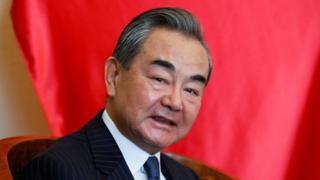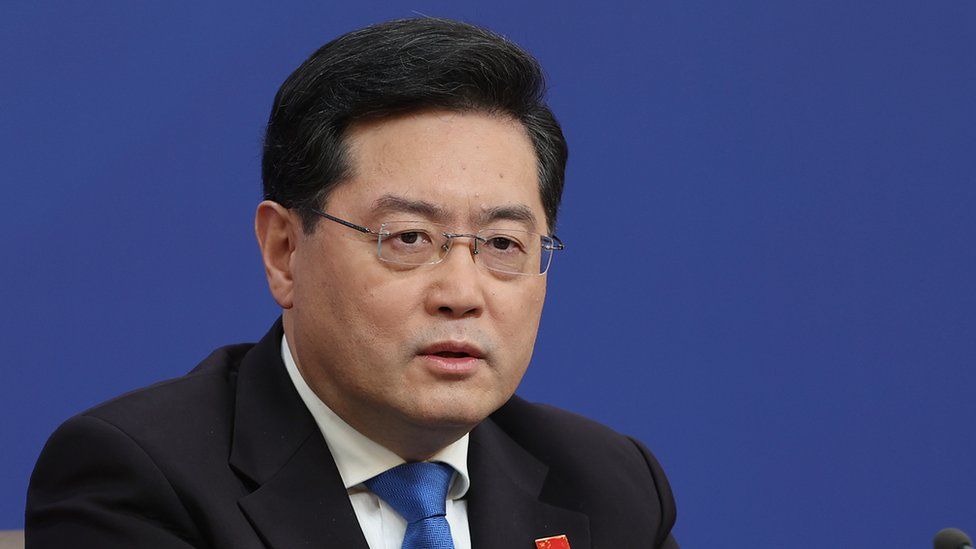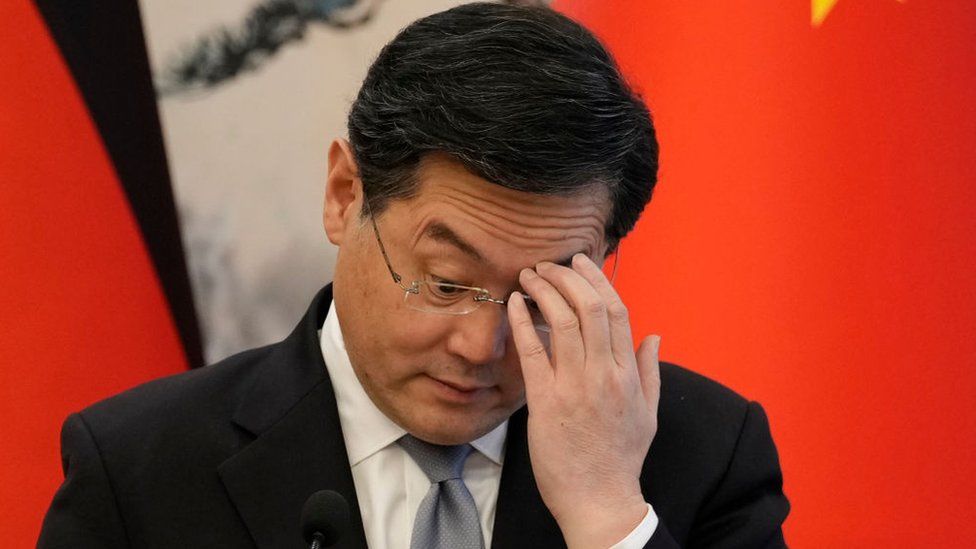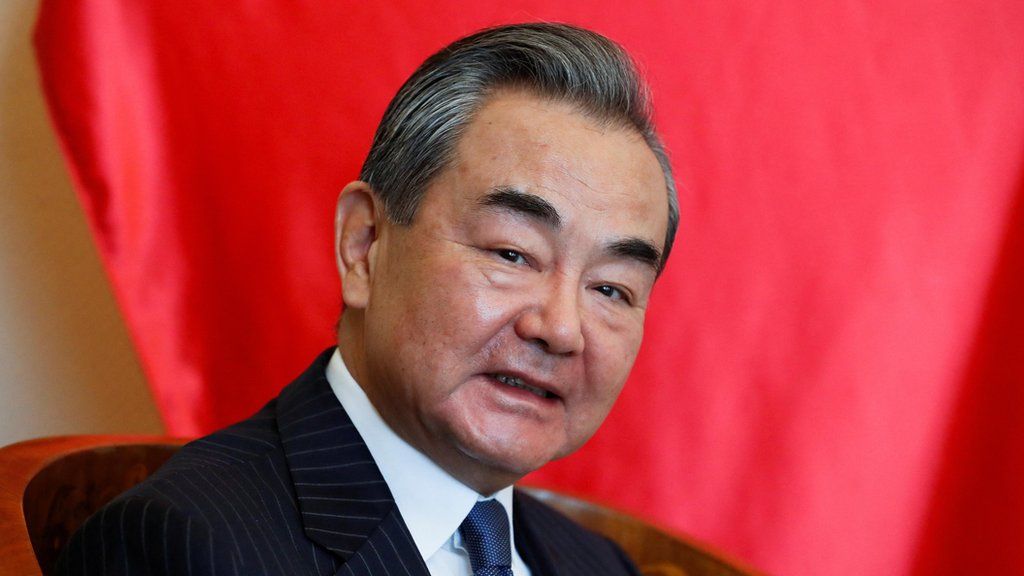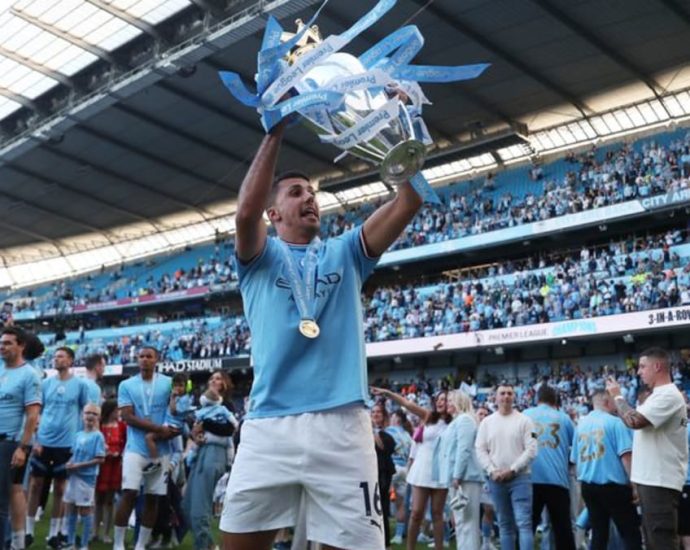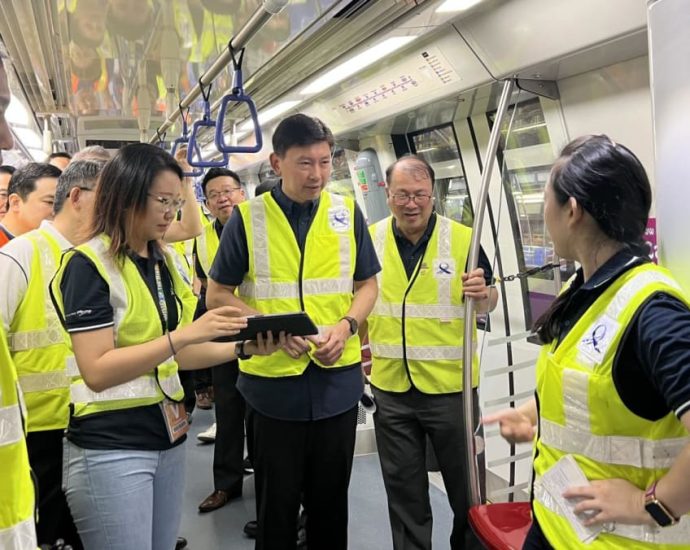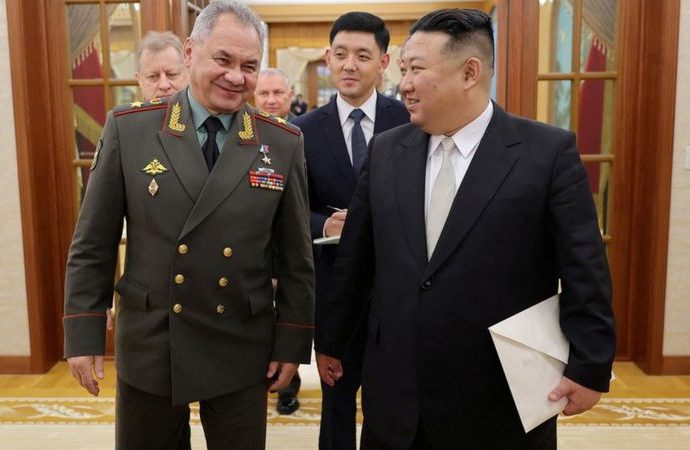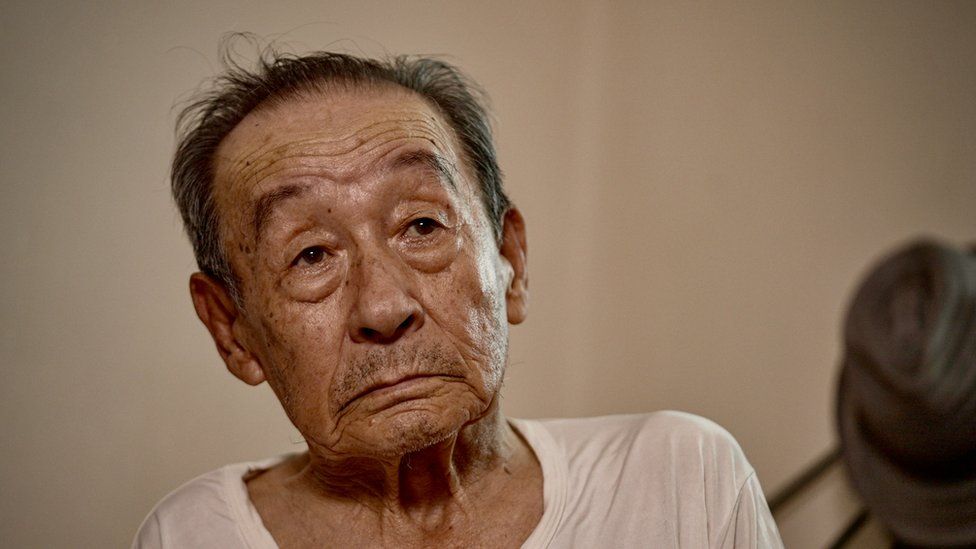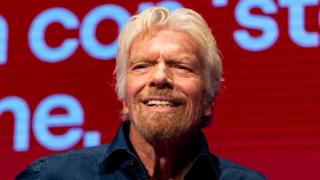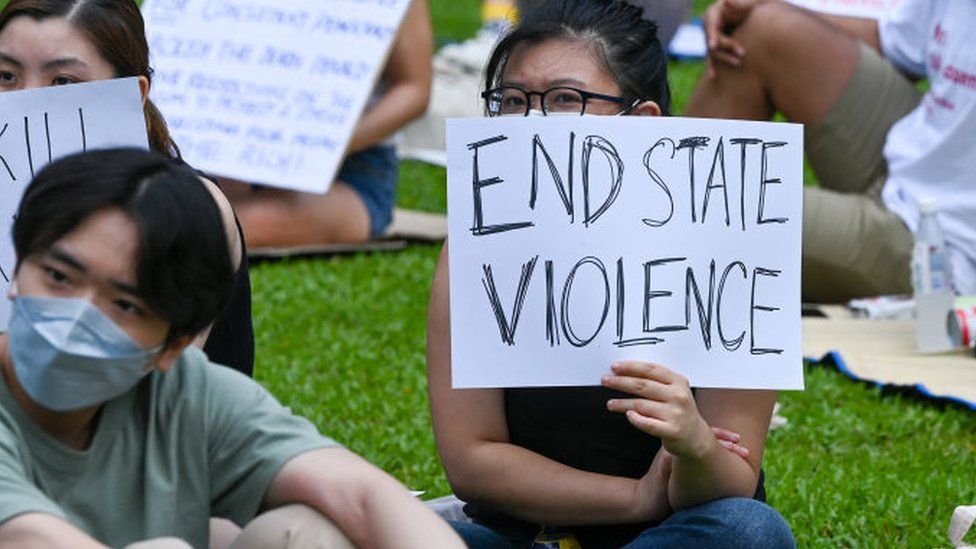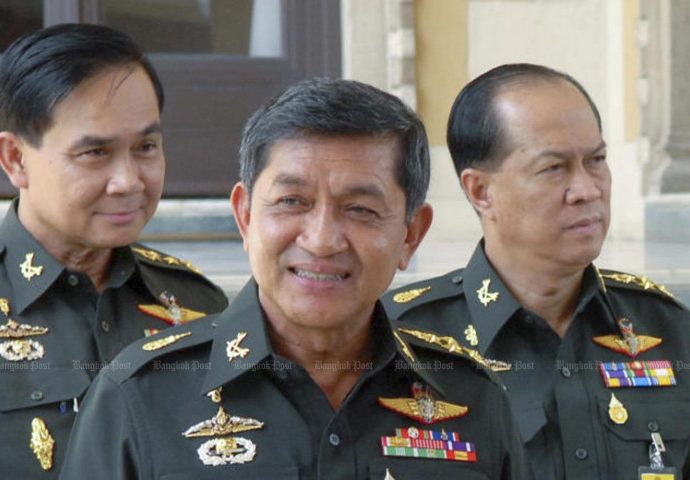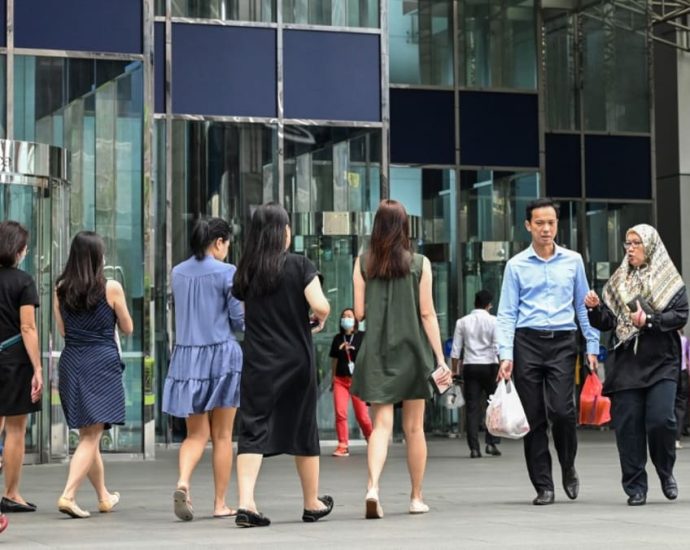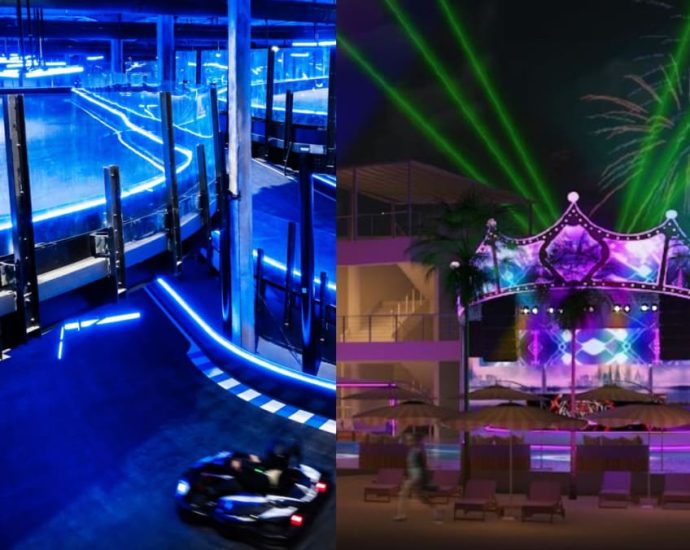Qin Gang: Foreign minister’s downfall leaves China red-faced
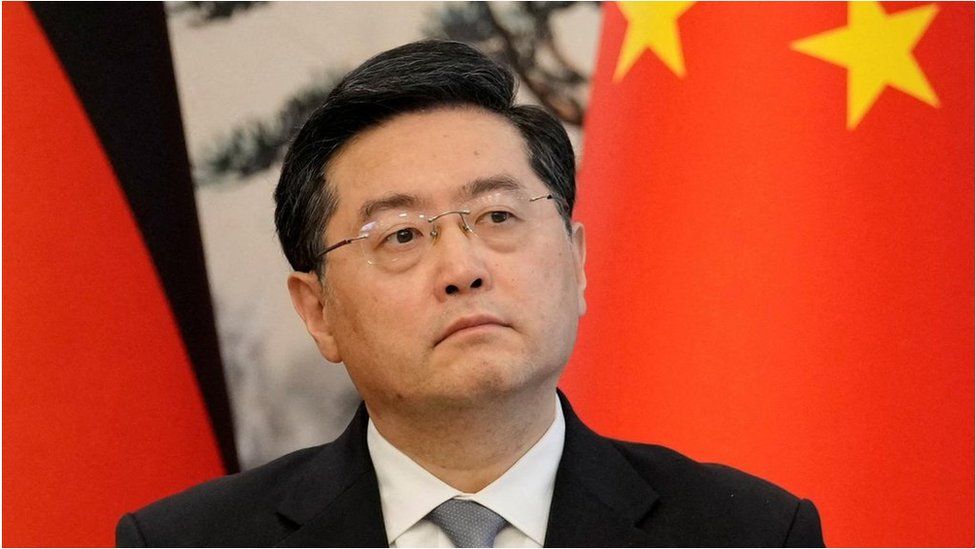 Reuters
ReutersAs mystery swirls over the removal of China’s foreign minister Qin Gang, questions have also arisen over what his downfall means for China’s diplomacy.
Following weeks of unexplained absence, Mr Qin this week was decisively rooted out by the Chinese leadership – even all mention of him was scrubbed off the foreign ministry website.
Analysts say that while this episode is unlikely to have a huge impact on foreign relations, it nevertheless has left Beijing red-faced.
Despite his “wolf warrior” reputation, Mr Qin showed he was also capable of a softer touch. This came out particularly during his tenure as ambassador to the US.
He not only urged for a more nuanced relationship between the two superpowers but also famously shot hoops at NBA games and threw pitches at baseball games, wooing the Americans in one of the languages they understood best – sport.
His appointment as foreign minister last December was seen by some as a sign that Beijing was dialling down its aggressive image by sending more even-tempered figures to the frontlines of its diplomatic corps.
But while Mr Qin helped to present a more moderate image of China to the world, he had little say on its actual foreign policy.
While he was foreign minister, he still had to answer to Wang Yi, who as the head of the Communist Party’s foreign affairs commission occupied the top diplomatic position in China’s party-centric power hierarchy. Mr Wang has now taken on Mr Qin’s job.
And ultimately, both had to follow their president’s political ideological playbook.
“Xi handpicked Qin Gang not to make foreign policy but to serve as the implementer-in-chief of Xi Jinping Thought on Diplomacy,” said Neil Thomas, a fellow in Chinese politics at the Asia Society Policy Institute.
“It is Xi and his inner circle who make major foreign policy decisions.”
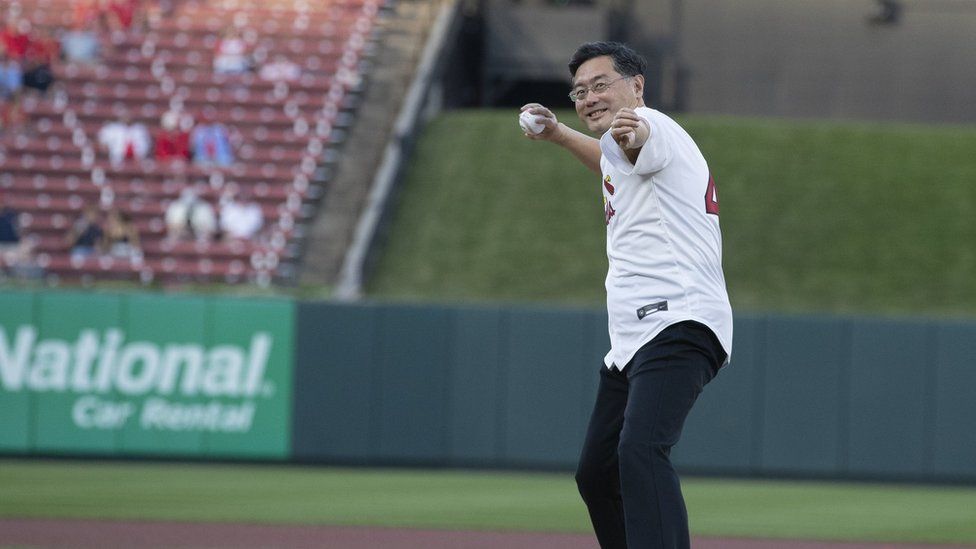
Mr Wang is now swiftly stepping into his old role, in addition to retaining his current position.
With the veteran diplomat fully holding the reins, Beijing appears keen to signal continuity and wants to reassure the global community that it is still business as usual.
Mr Wang is a well-known face on the international circuit, responsible for some of China’s recent international charm offensives over major issues such as the Ukraine war.
He is likely to focus on ensuring the US-China relationship returns to an even keel after months of hostility, with Mr Xi’s possible November visit to the US a top priority, analysts say.
Some have also noted his experience in handling cross-strait relations as the former director of the Taiwan Affairs Office, which would be crucial as the Taiwan presidential elections – usually a source of friction between Taipei and Beijing – loom ahead in January 2024.
But while Mr Wang is seen as a safe pair of hands there are doubts he will be foreign minister for long. Many believe he is a placeholder while Mr Xi hunts for someone to ease Mr Wang’s workload.
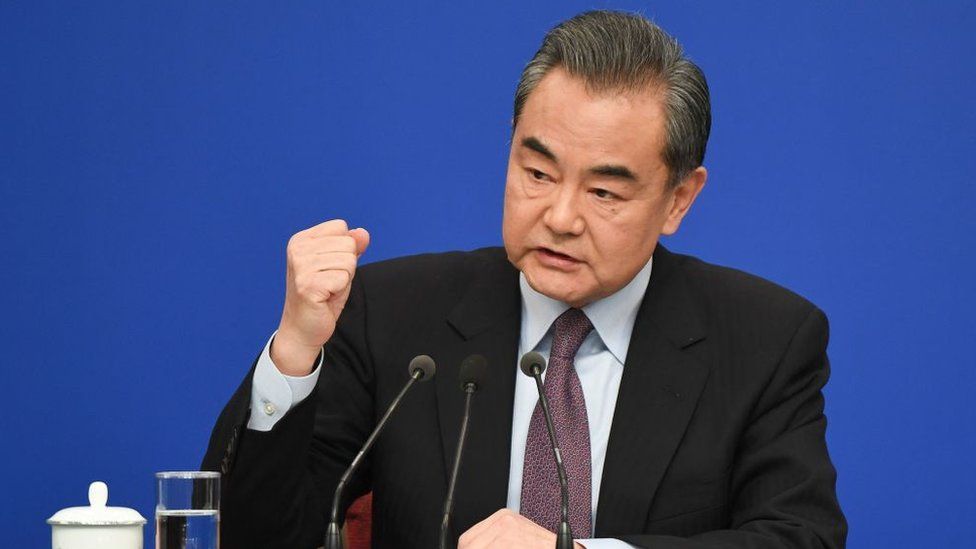
Mr Wang now has to juggle the top two roles in Chinese diplomacy just as Beijing fills up its diplomatic diary to make up for three years of Covid isolation.
Experts say Beijing may have less capacity to meet foreign officials from smaller countries – not ideal as it tries to woo the so-called global south.
Mr Wang’s dutiful substitution also cannot obscure the fact that abruptly pulling Mr Qin off the pitch with no explanation sends out a troubling message.
It calls into question Mr Xi’s judgment, given that he had clearly regarded Mr Qin as a star player who deserved to quickly rise up the ranks.
“The Qin Gang affair is not good for the Chinese Communist Party’s image abroad and even internally,” said Jean Pierre Cabestan, a senior research fellow at the Asia Centre think tank.
“It highlights a certain level of instability in the leadership, possible policy disagreements, unprofessional high-level official promotion methods and a degree of political opacity that does not fit well with China’s ambition to become a global power.”
James Palmer, deputy editor of Foreign Policy, said that reappointing Mr Wang to signal continuity “makes no sense” as “Beijing has now reminded these partners that not only can Chinese officials disappear at any minute, but the government will also pretend they never existed. Any achievements or discussions with Qin… now amount to nothing.”
The Qin Gang episode shows “the Chinese diplomats foreign governments and companies often interact with are usually a long way from the centre of power”, said Mr Thomas.
It is, in the end, “another reminder that Xi Jinping is the decisive actor in Beijing”.
Related Topics
-
-
19 hours ago
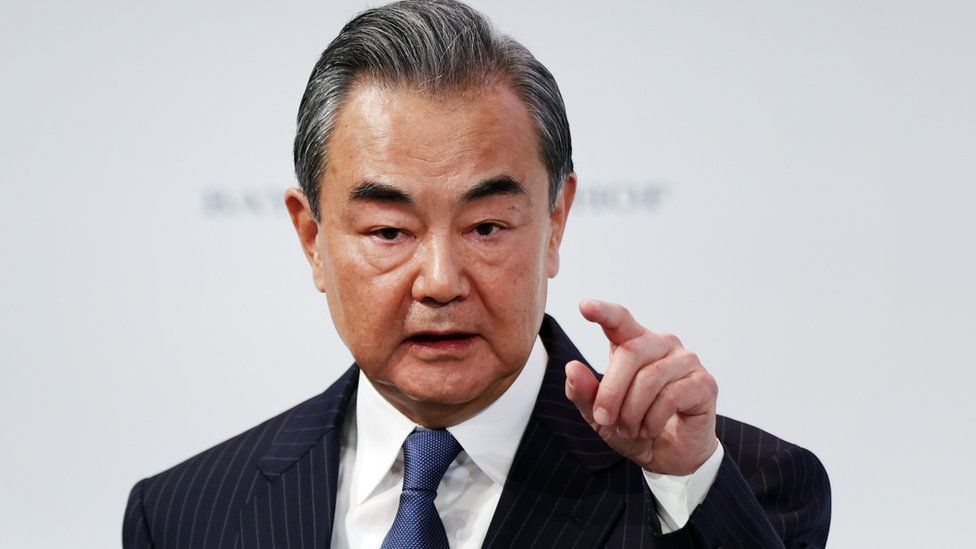
-
StarHub offers half-price English Premier League streaming service for Pioneer Generation seniors
SINGAPORE: Pioneer Generation seniors will be able to watch all English Premier League matches on StarHub for half the usual price, the telco announced on Thursday (Jul 27). Eligible seniors can sign up for the Premier+ streaming service for S$12.61 (US$9.52) monthly, half the usual price of S$25.22. The offerContinue Reading
Six new trains added to the North-East Line from Jul 28
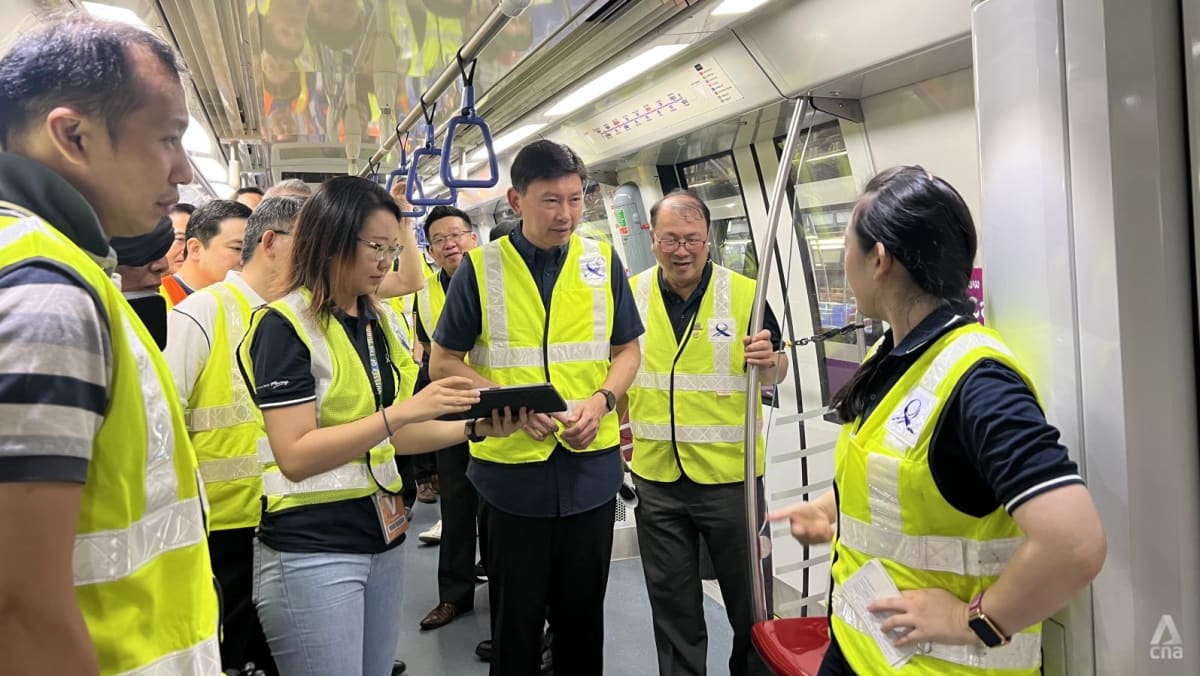
Two of the new trains are also fitted with an automatic track inspection system, the first trains on the North-East Line to have them.
This system monitors track conditions while the trains are at work via cameras and sensors installed on the underframe of the vehicle.
“This will improve detection of track defects, such as rail cracks, rail corrugation and missing rail fasteners,” said LTA in the press release.
The six new trains were manufactured and assembled by Alstom in Barcelona, Spain. They arrived in April 2021 and have been undergoing testing since then.
In addition to the new trains, LTA added that the mid-life upgrade of the 25 first-generation North-East Line trains is “progressing smoothly”.
Four trains have been upgraded so far, and the remaining ones will be progressively upgraded by 2026. They will get newly renovated interiors, as well as new condition-monitoring capabilities and air-conditioning and ventilation systems.
North Korea: Kim Jong Un shows off missiles to Russia defence chief Shoigu
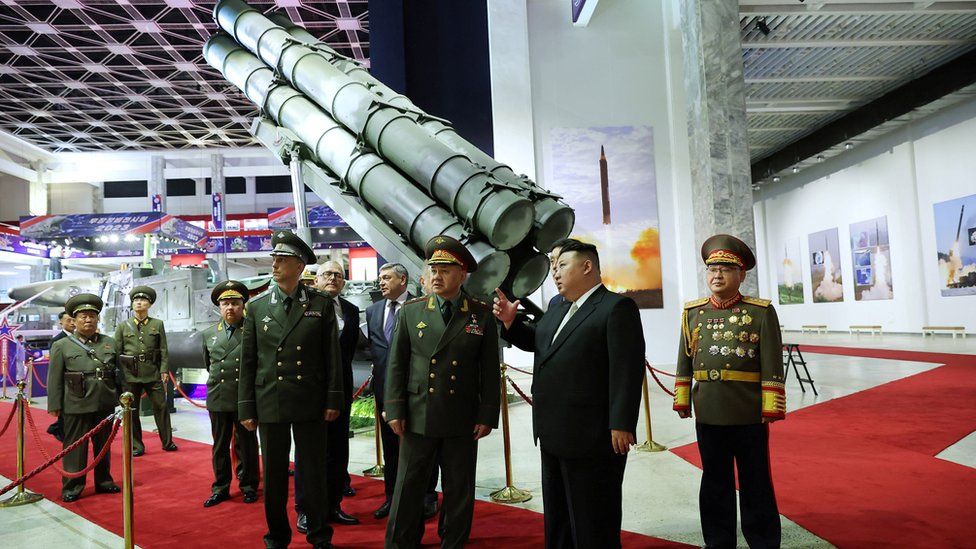 Reuters
ReutersKim Jong Un showed off North Korea’s latest weapons to Russia’s defence chief Sergei Shoigu on Wednesday.
Pyongyang invited the Russian delegation led by Mr Shoigu, as well as Chinese officials.
They will attend Pyongyang’s celebrations of the 70th anniversary of the Korean War’s armistice, marked typically by massive military parades.
The weapons on display included the Hwasong intercontinental ballistic missile (ICBM).
Successfully tested in April, It is believed to be the country’s first ICBM to use solid propellants, which makes it quicker to launch than liquid-fuel ones.
Also on show were two new drone designs, including one resembling the primary offensive strike drone used by the US Air Force, according to NK News, a specialist site focusing on North Korea.
The friendly tour comes amid accusations that Pyongyang is supplying Russia with arms for use in its war in Ukraine – a claim that both Pyongyang and Moscow deny.
North Korea’s KCNA said Mr Kim and Mr Shoigu discussed “matters of mutual concern” in the fields of national defence and on the international security environment.
The delegations’ visit for North Korea’s Victory Day – as the 1953 end of hostilities is called in the North – is expected to finish on Thursday with an extensive military parade. The Koreas are technically still at war because no peace agreement was reached when the conflict ended.
Both Russia and China are long time allies of North Korea. Their visit marks the first time Mr Kim has thrown open the doors to foreign guests since the Covid pandemic.
The last time Pyongyang invited foreign government delegates for a military parade was in February 2018.
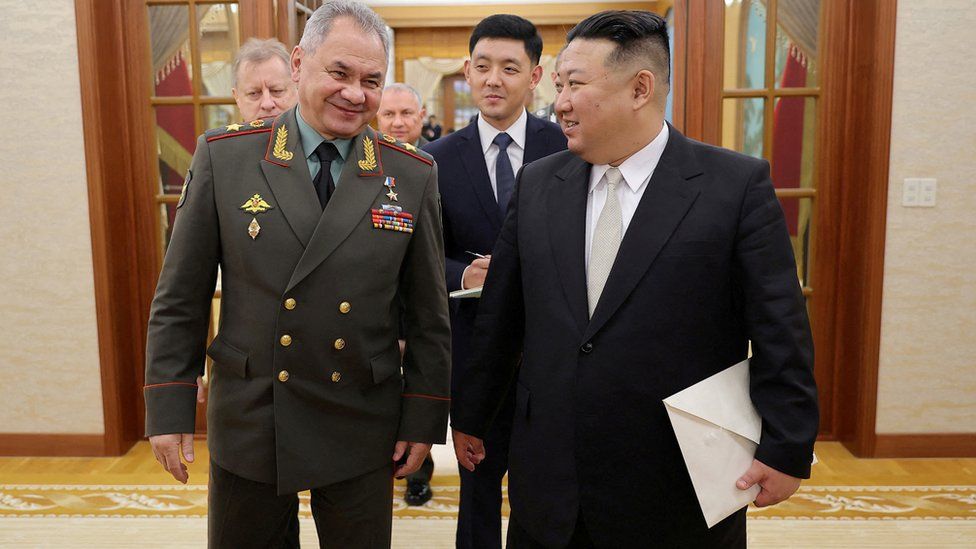
Mr Kim had a “friendly talk” with Mr Shoigu, who handed him an autographed letter from Russian President Vladimir Putin, KCNA said, adding that he had later called North Korea’s military “the most powerful” in the world.
The visiting Chinese delegation, led by politburo member Li Hongzhong, also handed a personal letter from Mr Xi to Mr Kim.
Mr Kim reportedly told Mr Li that “the Korean people will never forget the fact that the brave soldiers of the Chinese People’s Volunteers shed blood to bring about the war victory”.
Beijing had sent troops in the autumn of 1950 to support North Korea in the war against South Korea. The then Soviet Union also supported North Korea in the war.
Since the collapse of the USSR in 1991, Russia has remained a natural ally for North Korea because of their mutual dislike for the US.
Some analysts say the inclusion of Chinese and Russian envoys in this year’s Victory Day parade hints at a possible loosening of Covid restrictions.
This comes weeks after images of North Koreans walking around without masks were shown on state media.
The reclusive country had sealed itself off from all trade and diplomatic ties in early 2020, even with Russia and China, its main economic and political partners.
Related Topics
-
-
23 hours ago
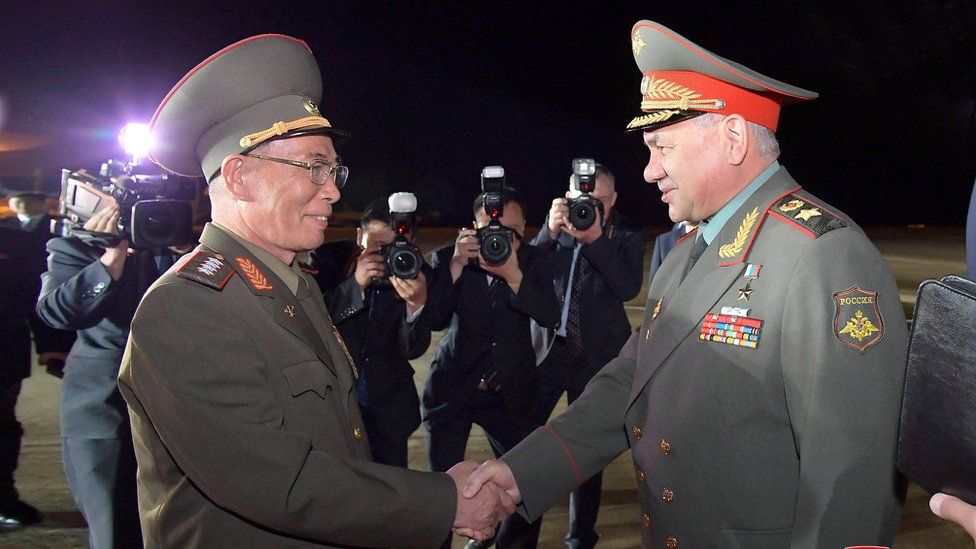
-
-
-
21 hours ago
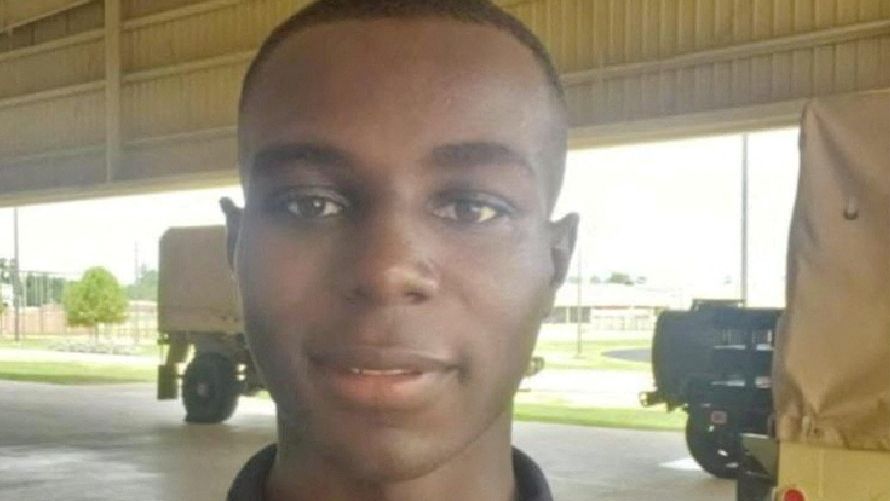
-
Singapore to execute first woman on drugs charge for the first time in 20 years
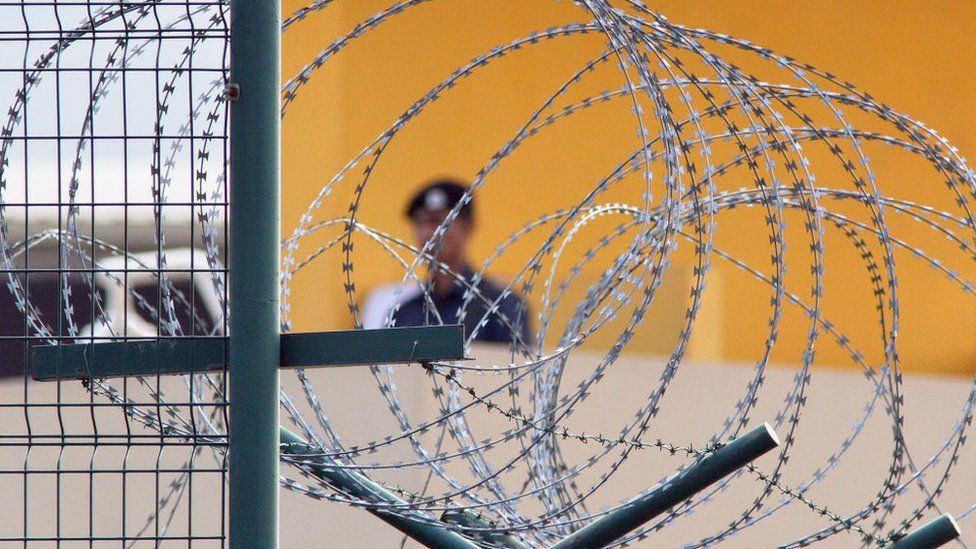 Getty Images
Getty ImagesSingapore is scheduled to execute a woman for the first time in almost 20 years, human rights advocates say.
Singaporean national Saridewi Djamani, 45, was found guilty of trafficking 30g (0.03oz) of heroin in 2018.
She will be the second drug convict to be executed in three days, after fellow Singaporean Mohd Aziz bin Hussain, and the 15th since March 2022.
Singapore has some of the world’s toughest anti-drug laws, which it says are necessary to protect society.
Aziz was convicted of trafficking 50g of heroin. Singapore mandates the death penalty for trafficking of more than 15g of heroin and more than 500g of cannabis.
Last April, another Singaporean, Tangaraju Suppiah, was executed for trafficking 1kg (35oz) of cannabis that he never touched. Authorities say he co-ordinated the sale via mobile phone.
Singapore’s Central Narcotics Bureau (CNB) declined to comment on Djamani’s case when contacted by the BBC.
In an earlier statement, the CNB said Aziz was accorded “full due process”, and that his appeal against his conviction and sentence was dismissed in 2018.
British billionaire Sir Richard Branson, has again criticised Singapore for its executions, saying the death penalty is not a deterrent against crime.
“Small-scale drug traffickers need help, as most are bullied due to their circumstances,” Mr Branson said on Twitter.
It is not too late to stop Saridewi’s execution, he said.
Saridewi is one of two women on death row in Singapore, according to the Transformative Justice Collective, a Singapore-based human rights group.
She will be the first woman executed by the city-state since hairdresser Yen May Woen in 2004, the group said. Yen was also convicted of drug trafficking.
Local has media reported that Saridewi testified during her trial that she was stocking up on heroin for personal use during the Islamic fasting month.
While she did not deny selling drugs such as heroin and methamphetamine from her flat, she downplayed the scale of those activities, noted judge See Kee Oon.
Authorities argue that strict drug laws help keep Singapore as one of the safest places in the world and that capital punishment for drug offences enjoys wide public support.
But anti-death penalty advocates refute this.
“There is no evidence that the death penalty has a unique deterrent effect or that it has any impact on the use and availability of drugs,” said Amnesty International’s Chiara Sangiorgio in a statement.
“The only message that these executions send is that the government of Singapore is willing to once again defy international safeguards on the use of the death penalty,” she said.
Amnesty International noted that alongside China, Iran and Saudi Arabia, Singapore is one of only four countries to have recently carried out drug-related executions.
Related Topics
-
-
31 October 2022
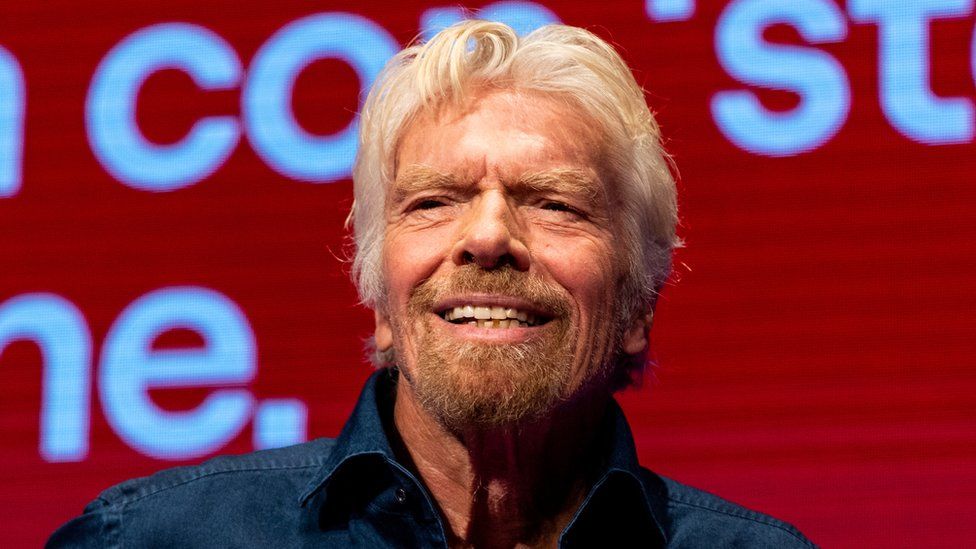
-
Thaksin ouster: Time to come home
PUBLISHED : 27 Jul 2023 at 11:59

The former army chief who staged a coup d’etat and overthrew the elected government of Thaksin Shinawatra 17 years ago now supports Thaksin’s return to Thailand, seeing it as a good opportunity for national reconciliation.
Gen Sonthi Boonyaratglin said on Thursday that Thaksin had the right to return his motherland, and this would provide him a chance to enter the justice system and address the pending legal cases against him.
According to the former army chief, Thaksin told him several days after the September 2006 coup that he was a gentleman and had good sportsmanship while looking forward to reconciliation.
With the Pheu Thai Party taking the lead in forming the next government, Gen Sonthi said the party will likely focused on finding solutions to conflicts within the country. Thaksin’s daughter, Paetongtarn “Ung Ing” Shinawatra, is a prime ministerial candidate of Pheu Thai.
“If there are conflicts in the country, it will be difficult for national administration. This is a good chance for the nation to resolve them,” he said.
Gen Sonthi added that he was of Class 6 at the Armed Forces Academies Preparatory School and Thaksin was his junior at the same school.
Its students had been taught about love for the nation, religion and the monarchy, he said.
“We know what the royal institution has contributed to the nation. I do believe that he still has the loyalty,” Gen Sonthi said.
Ms Paetongtarn announced on Wednesday that her father would be returning to Don Mueang airport on Aug 10.
No Signboard Holdings CEO charged with price rigging offences in shares buyback scheme
SINGAPORE: The chief executive officer of restaurant operator No Signboard Holdings was charged on Thursday (Jul 27) with price rigging offences. Lim Yong Sim, who is also the executive chairman of the company, is charged with three counts of engaging in a course of conduct for the purpose of creating aContinue Reading
Retrenchments down after three quarters of increases, unemployment rates remain low: MOM
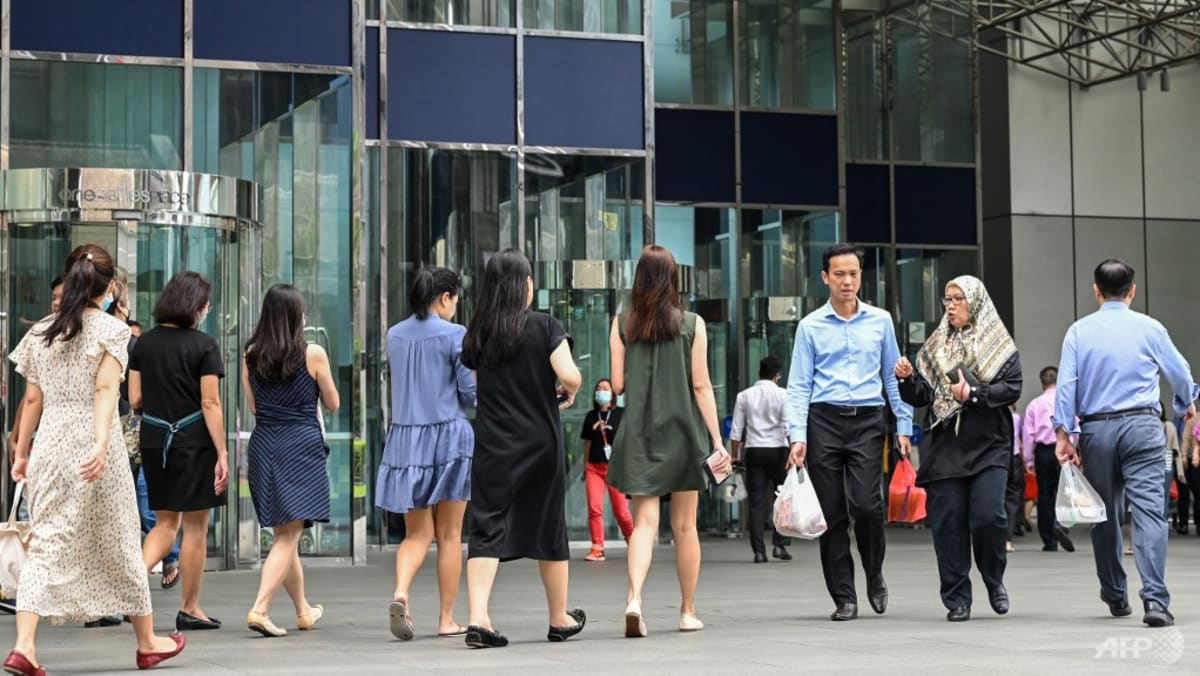
MODERATION IN GROWTH
Total employment excluding migrant domestic workers expanded for the seventh consecutive quarter, although growth had “moderated significantly” compared to the preceding quarter, MOM said.
The number of jobs grew by 23,700 in the second quarter, lower than the increase of 33,000 seen in the first quarter.
MOM said that total employment growth in the second quarter “came solely from non-residents, although this has also eased from past quarters, with a broad-based slowdown in non-resident growth across sectors”.
Non-resident employment growth was mainly in construction, amid “sustained demand for both public and private sector projects, such as housing”, the ministry said.
Resident employment change, meanwhile, contracted for the first time since the second quarter of 2020.
Seasonal declines were observed in food and beverage (F&B) services and retail trade, MOM said.
“Resident employment grew in other sectors, mainly in community, social and personal services, financial services and professional services, although growth has moderated.”
The ministry said that the declines in F&B and retail during this period were “not unusual”.
“F&B and retail outlets usually increase their hiring of temporary staff in the fourth quarter to cater for year-end festivities, and reduce their number of staff in subsequent quarters, as consumer demand eases,” MOM said.
The resident employment level is, however, still above its pre-pandemic level in 2019, it added.
Unemployment rates remained low, although they rose slightly in April and May before remaining unchanged between May and June.
Preliminary figures showed that the unemployment rates in June were 2.8 per cent for citizens, 2.7 per cent for residents and 1.9 per cent overall.
“Over the quarter, the number of unemployed residents rose from 62,200 in March 2023 to 64,600 in June 2023,” MOM said.
Watch live at 1.30pm: CNA Leadership Summit – Trust Matters
SINGAPORE: Minister for Culture, Community and Youth and Second Minister for Law Edwin Tong will deliver the opening keynote address at the CNA Leadership Summit 2023 on Thursday (Jul 27). The event, held at the Ritz-Carlton, Millenia Singapore, will be streamed live on CNA’s YouTube channel and LinkedIn page from 1.30pmContinue Reading
Sentosa has new attractions including an electric go-kart circuit, an 18-hole mini golf course and beach clubs
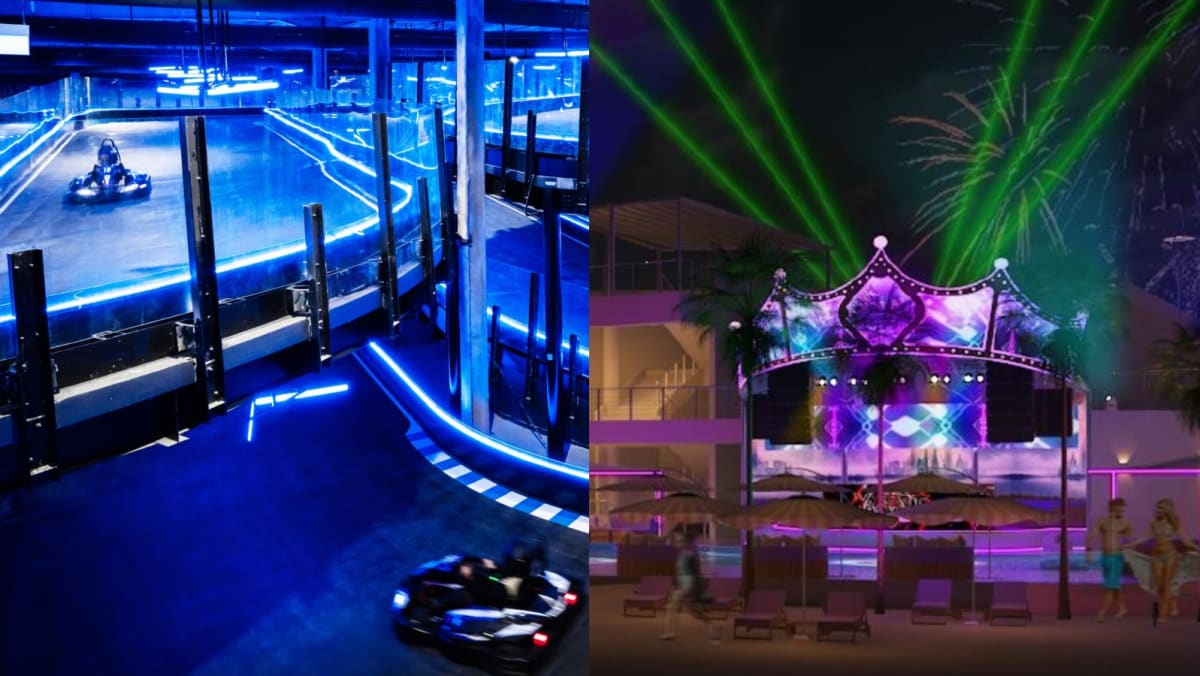
1. THE PALAWAN @ SENTOSA
The first attraction is The Palawan @ Sentosa which opened on Wednesday (Jul 26). The 183,000 sq ft lifestyle and entertainment precinct features eight experiences including HyperDrive, an electric go-kart circuit with gamification features that immerse drivers around a three-level racetrack and UltraGolf, an 18-hole mini golf course.
Those with fur babies of the paw-tastic kind can bring their pups to The Palawan Dog Run where they can run around unleashed, literally.
Visitors who want to soak up the sun can choose between the two beach clubs at The Palawan @ Sentosa: Splash Tribe and +Twelve. The former is a family-oriented beach club with a sandcastle-themed wet-play zone and an infinity pool, while the latter is a terraced beach club sporting 12 cabanas with private plunge pools.
Visitors can also fuel up at any of the precinct’s 10 food trucks which serve comfort food and reimagined classics of different cuisines.
“With The Palawan @ Sentosa, we are embarking on an exhilarating journey of redefining leisure and entertainment,” said Gavin Weightman, General Manager of The Palawan @ Sentosa.
“The first lifestyle precinct by the Shangri-La Group showcases our dedication to crafting unforgettable colourful moments of joy, where guests can immerse themselves in an extraordinary fusion of innovative leisure activities, inviting beach club experiences, and the timeless allure of Sentosa’s idyllic surroundings.”
More information on The Palawan @ Sentosa can be found here.

